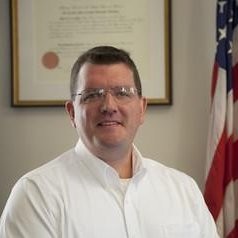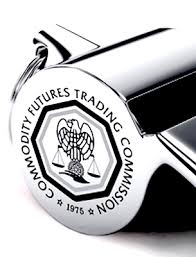
CFTC Director Whistleblower Office Chris Ehrman was the latest guest on CFTC Talks with CFTC’s Chief of Market Intelligence Andrew Busch.
The CFTC Whistleblower Office was created as part of the Dodd/Frank Bill passed in 2010 and the office, according to Ehrman, was first created the following year in 2011.
“It’s designed to provide incentives and protections for folks who have information about potential violations of the Commodities Exchange Act or the CFTC rules.” Ehrman said.
Ehrman further noted that office provides confidentiality, protection from retaliation, and whistleblowers also receive monetary awards for any disclosure which leads to a fine of $1 million or more.
Ehrman said that payments to whistleblowers range from 10-30% of the monetary sanction.
The Securities and Exchange Commission (SEC) launched a similar office also as a result of the Dodd/Frank bill, Ehrman said
“Our rules are ostensibly the same as theirs,” Ehrman said of the CFTC and SEC offices for whistleblowers.
 “It’s been extremely effective” Ehrman said of the program, stating that between 30-40% of the enforcement actions start with a whistleblower.
“It’s been extremely effective” Ehrman said of the program, stating that between 30-40% of the enforcement actions start with a whistleblower.
Though Ehrman highlighted the strength of the office, being a whistleblower is often a heart wrenching experience.
“When you’re a whistleblower, you can potentially take some risks,” Ehrman said.
The Industry Spread has documented the case of at least one CFTC whistleblower who did not receive the protections promised by Ehrman.
In the case of Edwin Johnson, he was the whistleblower about widespread spoofing at 3 Red Trading.
Furthermore, an Illinois judge forced Johnson to disclose his meetings with staff not only at CFTC but at other law enforcement agencies, including the Federal Bureau of Investigation (FBI) and the US Attorney’s Office.
Oystacher and 3 Red Trading were fined $2.5 million for the spoofing which Johnson brought to the CFTC.
Remarkably, one reason that Johnson has not been afforded any protection is because his status as a whistleblower is still under review, even though his information led to the fine.
It’s not only in the world of trading where whistleblowers face retaliation.
Arguably, the most famous American whistleblower is Frank Serpico, who was played by Al Pacino in the 1973 movie entitled Serpico.
Serpico brought forward credible evidence that most of the New York City Police Department officers in the plainclothes (those who don’t wear a police uniform) division were receiving bribes on a regular basis.
Serpico was shot on February 3, 1971, while on a drug bust when his back refused to back him, and his fellow officers refused to call for help; he survived only after a resident of the apartment building where the bust occurred called for an ambulance.
“None of New York City’s 39,000 police would give me blood,” Serpico said later; he was shot in the face and nearly bled to death.
Because of his efforts, the Knapp Commission was formed to root out police corruption in New York City.
“Through my appearance here today, I hope that police officers in the future will not experience the same frustration and anxiety that I was subjected to.” Serpico said when he testified at the Knapp Commission. “For the past five years at the hands of my superiors because of my attempt to report corruption. I was made to feel that I had burdened them with an unwanted task. The problem is that the atmosphere does not yet exist, in which an honest police officer can act without fear of ridicule or reprisal from fellow officers.” Serpico said at the Knapp Commission.









